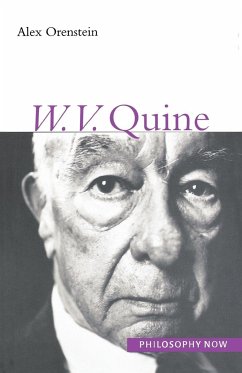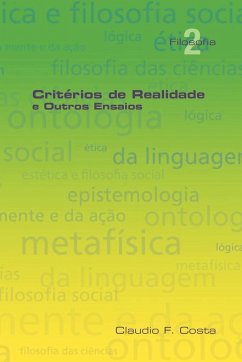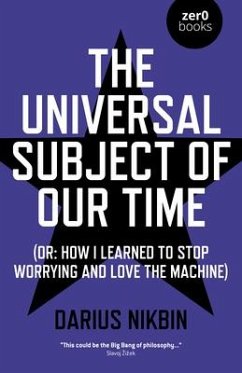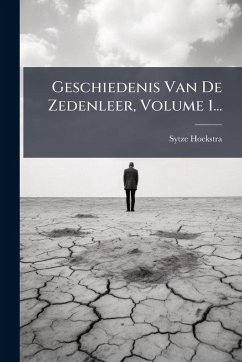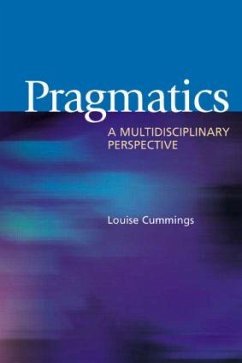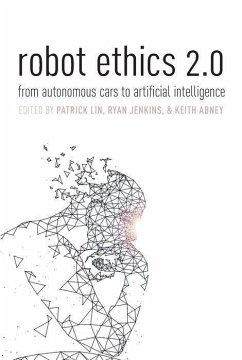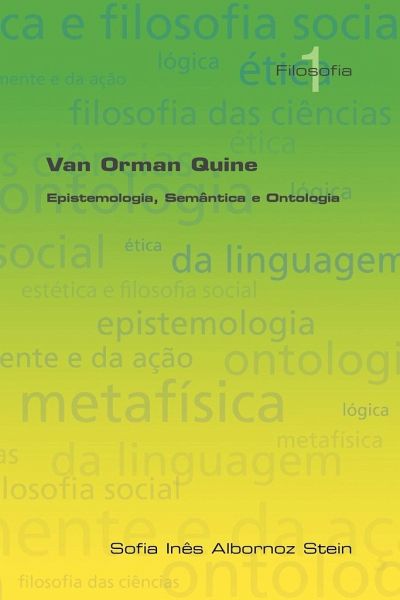
Van Orman Quine
Epistemologia, Semantica E Ontologia
Versandkostenfrei!
Versandfertig in über 4 Wochen
27,99 €
inkl. MwSt.

PAYBACK Punkte
14 °P sammeln!
Uma das preocupações centrais de Quine é a de como alcançamos as verdades da ciência partindo das impressões na superfície de nossos sentidos. Esta, é claro, é uma pergunta feita do ponto de vista empirista e faz parte do lado doutrinal da epistemologia, da investigação da verdade das teorias científicas e das evidências que fundamentam essa verdade. Quine utiliza-se da psicologia empírica como meio para alcançar uma visão ampla da passagem que ocorre entre o aprendizado de enunciados observacionais, por meio do significado por estímulos, e a composição dos teóricos. Analis...
Uma das preocupações centrais de Quine é a de como alcançamos as verdades da ciência partindo das impressões na superfície de nossos sentidos. Esta, é claro, é uma pergunta feita do ponto de vista empirista e faz parte do lado doutrinal da epistemologia, da investigação da verdade das teorias científicas e das evidências que fundamentam essa verdade. Quine utiliza-se da psicologia empírica como meio para alcançar uma visão ampla da passagem que ocorre entre o aprendizado de enunciados observacionais, por meio do significado por estímulos, e a composição dos teóricos. Analisando o comportamento humano durante a aprendizagem lingüística, Quine progressivamente vislumbra as 'condições de possibilidade' desta. Todo o sistema filosófico de Quine, com suas teses da inescrutabilidade da referência, da indeterminação da tradução e da subdeterminação de teorias científicas, pode ser compreendido como uma tentativa de explicar o funcionamento interno da linguagem significativa, aceitando, simultaneamente, a circularidade inerente ao discurso filosófico naturalizado. Este livro apresenta um panorama da vida e da obra de Willard Van Orman Quine, partindo da descrição de sua inserção no movimento empirista, como seguidor e como crítico de seus dogmas, e na filosofia analítica do século XX, herdeira do logicismo. É focado no seu extensionalismo, que incita a regimentação parcial da linguagem, a crítica às modalidades e que sustenta os holismos semântico e epistemológico por ele mantidos. One of Quine's main concerns is how we reach the truths of science starting from the impressions on the surface of our senses. This, of course, is a question made from an empiricist point of view and is part of the doctrinal side of epistemology. It is part of the inquiry about the truth of scientific theories, i.e., about the evidence that supports truth. Quine uses empirical psychology as a mean to achieve a broad view of the transition that occurs between the learning of observational sentences, through its stimulus meaning, and the composition of theoretical ones. Analyzing human behavior during linguistic learning, Quine gradually discerns the 'conditions of possibility' of it. The entire philosophical system of Quine, with his main theses of the inscrutability of reference, of the indeterminacy of translation and of under-determination of scientific theories, can be understood as an attempt to explain the inner operation of meaningful language, accepting, at the same time, the circularity inherent to the philosophical naturalized discourse. This book gives an overview of the life and works of Willard Van Orman Quine, starting from a description of his insertion in the empiricist movement, as follower and critic of his dogmas, and in the twentieth century's analytic philosophy, heiress of logicism. It emphasizes Quine's extensionalism, which prompts his partial regimentation of language, his criticism to modal logic and gives rise to the semantic and epistemological holism sustained by him.



